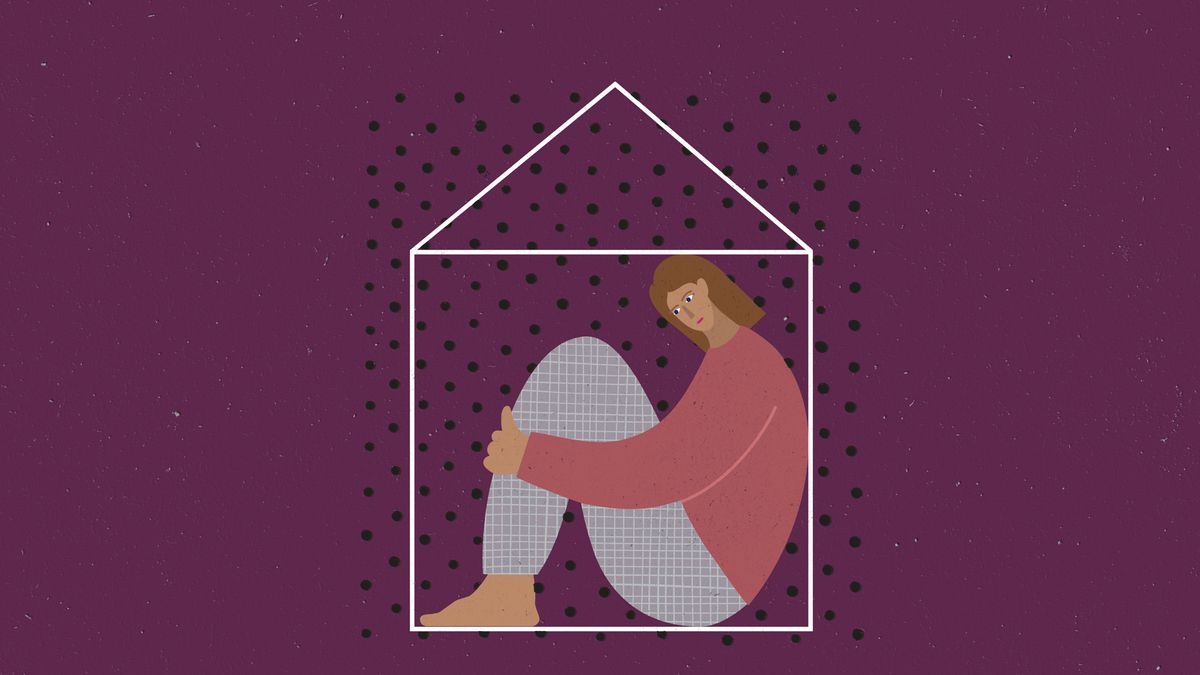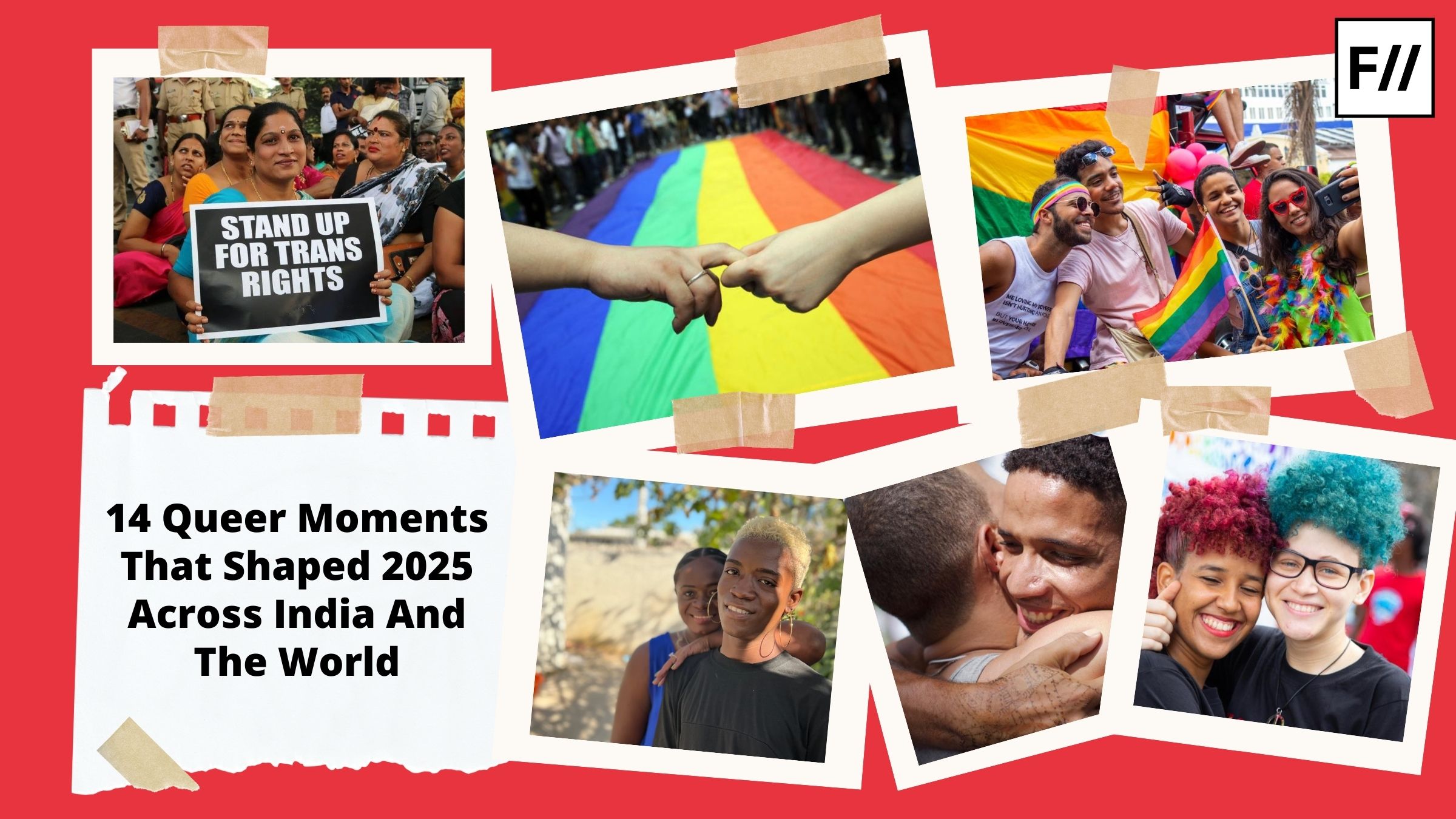In Epistemology of the Closet (1990), Eve Sedgewick attributes the idea of “closetedness” to a silent performance. Coming out has long been acknowledged as an outstanding, life-changing event by itself. Yet, there are layers upon layers to one’s experiences ‘within’ the closet. Once outside, oppression and stigmatization hound those tagged ‘abnormal’ in a society. But within, one constantly juggles the anxiety of being outed with a vision of finally living as they would like to. These are but two sides of the same coin, and as Sedgewick points out in her work, one could be in just as much danger ‘within’ as outside.
This is because the discourse of the closet has been constructed in relation to what lies outside. One must comply to the heteronormativity and the social norms pertaining to one’s biological sex. You play your part in social institutions, as designated by your sex. Or else, you risk being treated as an outcast between two extremities—seen either as a man too ‘effeminate’ or as a woman too ‘masculine’. For someone who has ventured out of the closet, being queer often translates into an act of assertion of identity. However, for someone who is still ‘within’ and/or experimenting, the road to self-assertion appears to have become quite different.
In the light of a humanitarian crisis assuming the proportions of the COVID-19 pandemic, we are faced with potentially everlasting changes in lifestyles and patterns of accessibility to healthcare, education, entertainment and employment. The World Health Organisation (WHO) has not expressed confidence in a vaccine or permanent antidote to the virus being mandated for mass production just yet. More significantly however, as social distancing becomes the new ‘normal’, in a Foucauldian sense, we are moving towards altering our discourses of love, intimacy and attraction as well. The human touch can never be outdated. But the pandemic has certainly altered our perceptions towards it.
This pandemic, along with changing our lifestyles, has also revealed gaping holes in the ways that our economy, health systems and society function. We are faced with job losses, ineffective healthcare mechanisms, cases of discrimination and homophobia at home, and violence against women and queer individuals all at the same time.
For quite some time, studies have been emphasizing that loneliness, anxiety, feeling coerced to keep up a heteronormative appearance, troubled social relations, substance abuse, lack of familial support, gender dysphoria, mental health issues, economic distress, and stigmatisation all act in tandem to contribute to a lower quality of life for queer individuals, and among them the youth especially. In such a scenario, when individuals are forced to isolate themselves in empty apartments or quarantine themselves with an unsupportive family or friends for months on end, one can only imagine the toll it would take on their mental health.
Also read: COVID-19: How Casteist Is This Pandemic?
In a 2014 study titled, ‘Does hugging provide stress-buffering social support?’, Cohen et al. found that though there are various means of extending one’s support, hugging is the most effective. It is also a natural buffer against stress and vulnerability to a host of diseases caused by stress and conflicts. In other words, the study underlines that the warmth of a simple hug can not only be reassuring but also alleviate susceptibility to diseases. But for someone who may still be trying to ‘figure out’ who they are and what their identity truly is, the loss of access to human touch is insurmountable.
This pandemic, along with changing our lifestyles, has also revealed gaping holes in the ways that our economy, health systems and society function. We are faced with job losses, ineffective healthcare mechanisms, cases of discrimination and homophobia at home, and violence against women and queer individuals all at the same time.
In the Indian context, where abysmal expenditure on healthcare and allied services has already demonstrated a severe impact, one can also hypothesize the impact on mental health in the near future, as government expenditure on it is even lower than the overall expenditure on health. India also has a paucity of mental health professionals. It is here that the queer youth is in direct line of fire, having to deal with stigma and discrimination not only on the economic front but also in terms of availing mental healthcare.
Our increased reliance on an active internet connection, communication through apps and social media, and the entire work-from-home model do scream ‘productivity’. Yet they have not proved effective against the physical reassurance of support. We can still use numerous dating apps to talk to strangers and forge new bonds. But without the possibility of a tangible, physical presence, that connection can only be stretched so far. We may be able to achieve our targets virtually but one of the core essentials of being human still remains tactile communication, very much rooted in the world outside.
In a 2016 report, WHO estimated the rate of suicides in India to be 16.5 per 100,000 persons, which was also the highest in South-east Asia. Additionally, India was ranked third in terms of the high rate of female suicides. In the current scenario, WHO has acknowledged that the cost of the pandemic will be revealed not just in how our world has changed physically but also in terms of rising mental illnesses.
In the Indian context, where abysmal expenditure on healthcare and allied services has already demonstrated a severe impact, one can also hypothesize the impact on mental health in the near future, as government expenditure on it is even lower than the overall expenditure on health. India also has a paucity of mental health professionals. It is here that the queer youth is in direct line of fire, having to deal with stigma and discrimination not only on the economic front but also in terms of availing mental healthcare.
Recently, there have been news reports of trans individuals committing suicide or facing homophobia and violence within the confines of their homes. What, then, do we make of those hundreds of individuals currently struggling with their sexuality and gender disposition, with finding a partner, or a decent job in this economy where productivity simply refuses to fade even if the channels of communication have changed?
Also read: Save The Child – Curating A Response Plan For Children Amidst The Pandemic
The dictum is that human touch may be lost but one must not lose out on being productive. Unfortunately, this spells disaster for those who are still in the closet, and by the time they gather the courage to move out, the world may have already changed forever. Of course, much of these struggles will go by unnoticed and as for the future, no amount of salve or bandaging may be able to heal the wounded psyche of individuals suffering from a lack of warmth, stability, and reassurance in these trying times.
Deepannita Misra is a researcher and young professional in the development sector with a Masters in Women’s Studies. When it comes to research, gender, intersectionality and mental health have been some of the key areas of interest for her. In the future, she wishes to continue to engage with gender and related fields and pursue a Phd. You can find her on Instagram and LinkedIn.
Featured Image Source: InQuire Media




